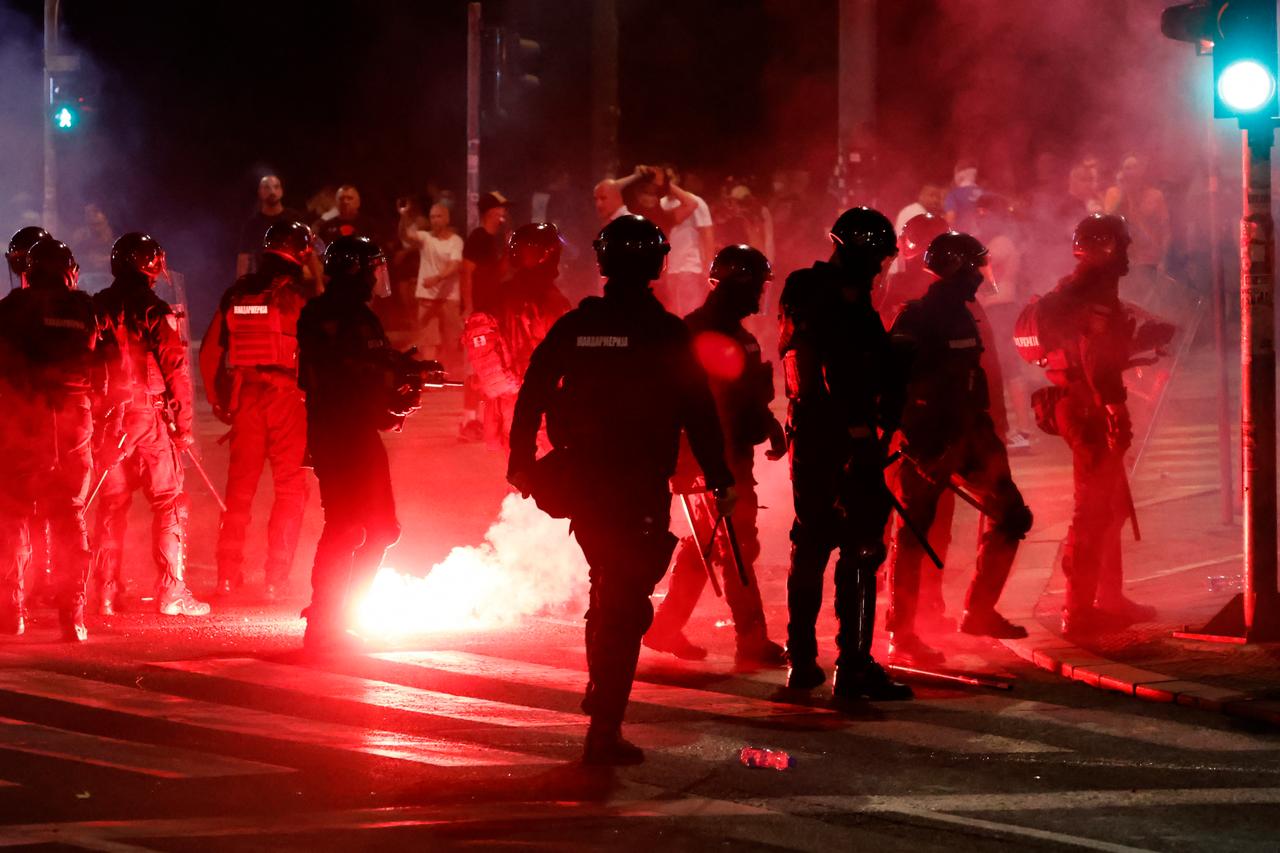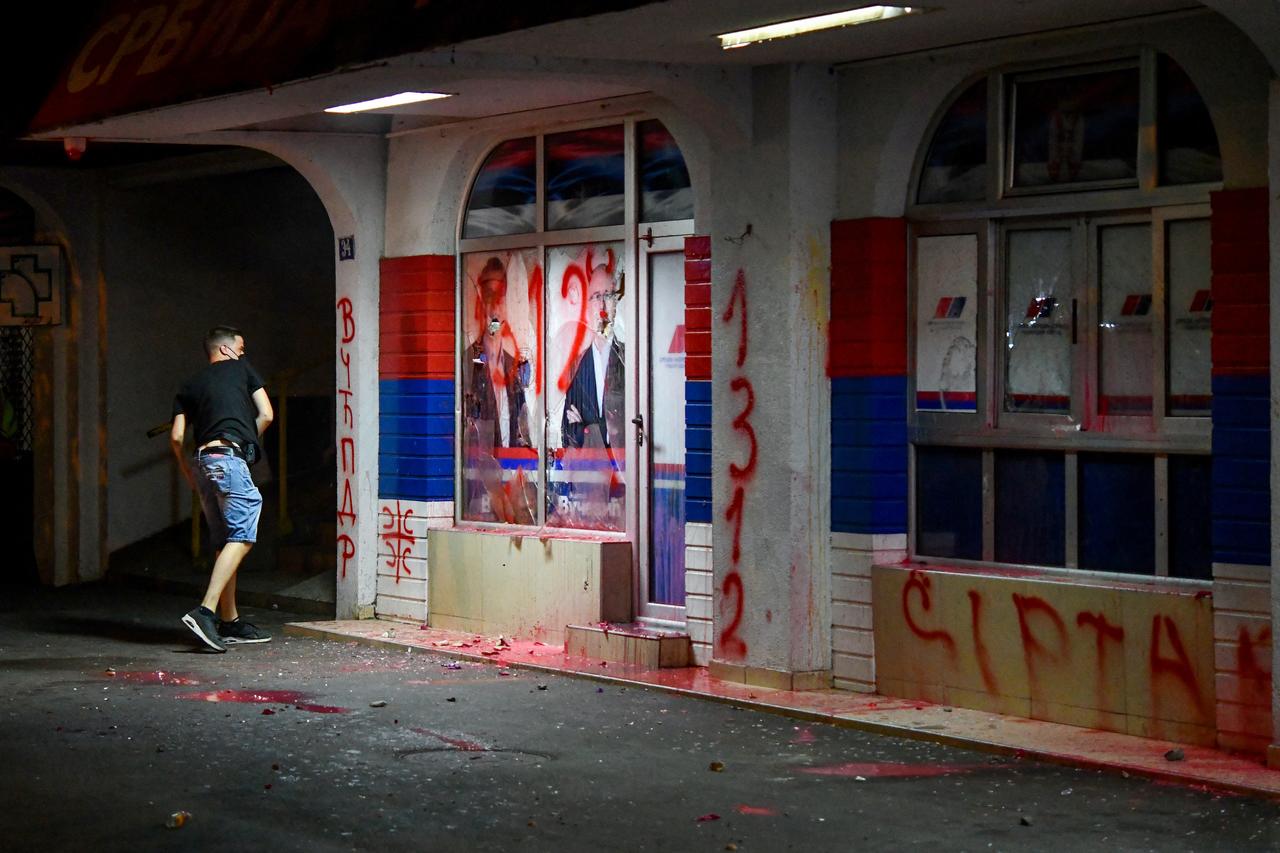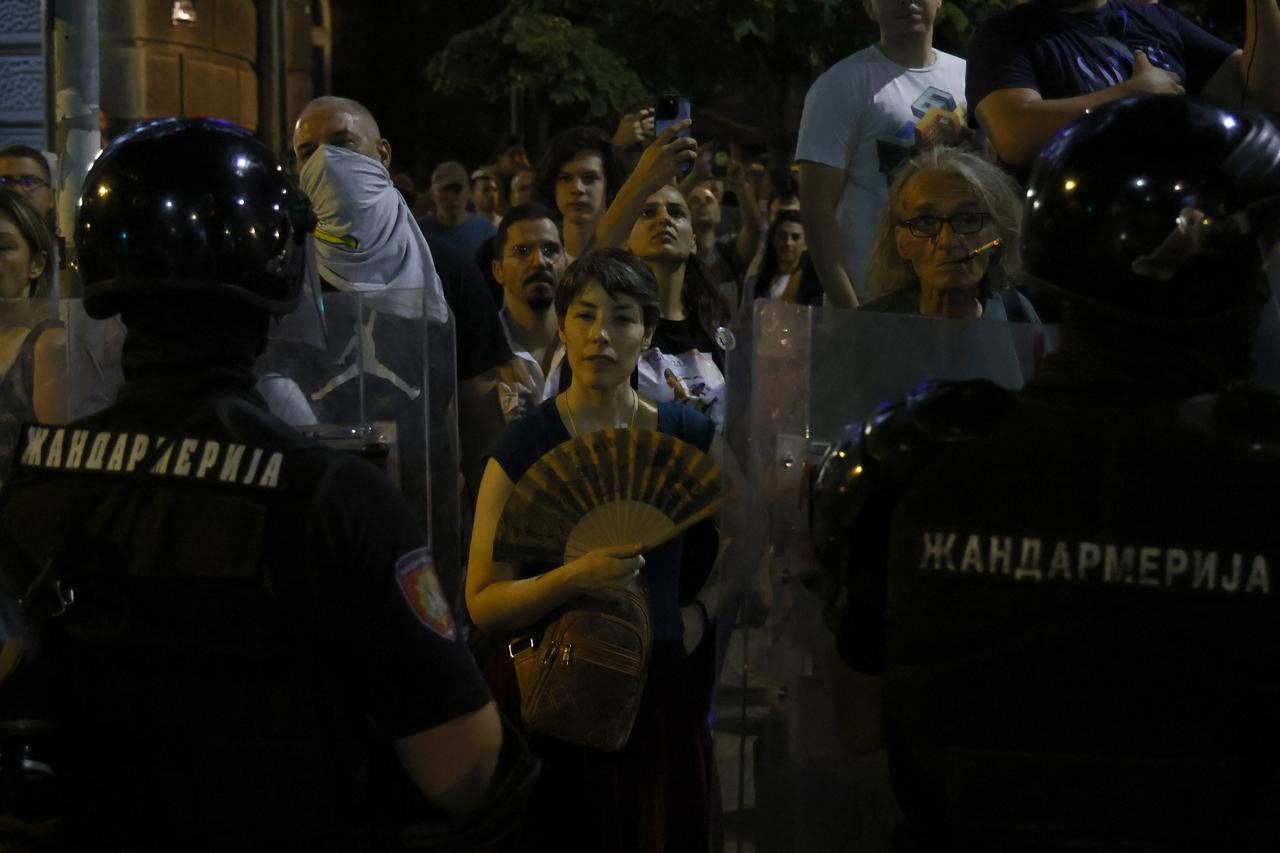
Tens of thousands of protesters took to the streets across Serbia Thursday, clashing with police and pro-government supporters as they sought access to the Serbian Progressive Party (SNS) headquarters in Belgrade and other cities.
The demonstrations, sparked by outrage over government corruption following the deadly collapse of Novi Sad’s railway station roof, escalated into violent confrontations, leaving several police officers and protesters injured and prompting multiple arrests.
Demonstrators also gathered at Nemanjina Street, near GO Novi Beograd, and at the Autokomanda junction. In Novi Sad, citizens began assembling outside the local Security and Intelligence Agency office. Meanwhile, one of the SNS offices in the city was targeted by protesters, although no party members were present at the time.

This week, clashes intensified following an attack on demonstrators by pro-government supporters in the town of Vrbas. Large groups of masked SNS supporters confronted protesters, resulting in objects such as bottles, stones, and fireworks being thrown. Authorities arrested nearly 50 people on Wednesday, and around 30 police officers sustained injuries.
On Thursday, protesters vandalized the Novi Sad headquarters of the ruling SNS party, as well as two other party offices in the city. In Belgrade, demonstrators gathered near government buildings and army headquarters, but riot police prevented them from reaching SNS offices by using teargas.
Interior Minister Ivica Dacic condemned the protests as an assault on state institutions, claiming the gatherings were no longer peaceful. At least five officers were injured Thursday evening, and 14 protesters were taken into custody.

Frustrated by government inaction, protesters have called for a full investigation into the Novi Sad disaster and demanded early elections. Student-led movements have organized demonstrations for months, some drawing hundreds of thousands of participants, but recent violence marks a sharp increase in tension.
UN human rights experts have warned of a troubling pattern of repression, including excessive police measures and arbitrary arrests. President Vučić has rejected calls for elections, insisting the protests are part of a foreign conspiracy, and he denies that his supporters instigated the recent clashes.